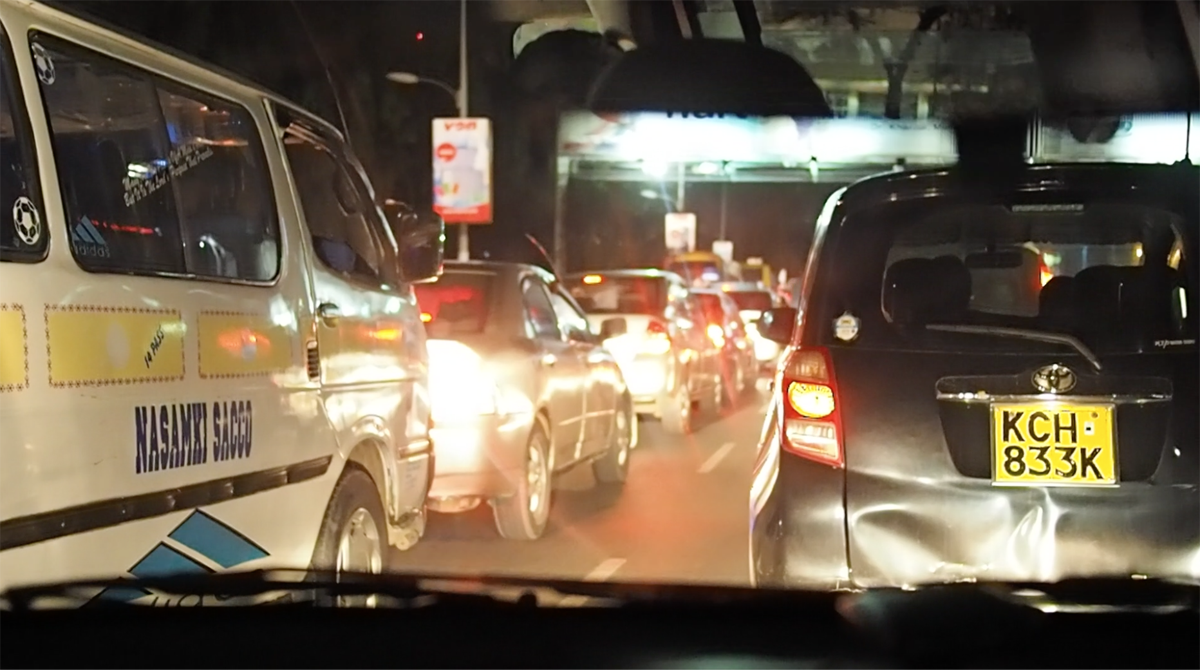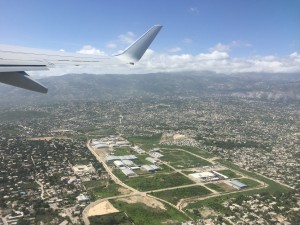Jour 5 – Au matin, nous sommes allés à Ndar Ndar pour boire du café, mais j’ai bu le jus de gingembre. C’était très fort. Nous sommes allés à la plage aujourd’hui. Pour moi, j’avais l’impression d’être dans un film. Ce sont les amis à la plage, écoutant de la musique, rien à faire mais passer une journée ensemble. Les anglais, Louis et Jake, ont fait un feu pour cuisiner du cannabis qu’ils ont acheté à Dakar. Alicia m’a dit que je parle bien le français mais j’ai un gros accent Américain à cause de mes Rs. J’essaierai plus dur. Le coût pour aller à la plage était seulement moins d’un dollar. Ça marche bien pour nous.
Jour 6 – Nous avons fait une randonnée autour de Saint Louis. Nous avons marché avec un club official (ce que Madame Faye fait partie) et après j’étais très fatigué. J’ai eu la flemme et j’ai fait une grande sieste après déjeuner.
Jour 7 – J’ai préparé le cours avec les femmes pour l’après-midi et après avoir visité deux maisons, nous avons fait une proposition à Moctar. Cheikh s’assure toujours que les volontaires sont bien préparés avant la visite avec Moctar. Il y avait un blocage au pont aujourd’hui alors j’ai marché beaucoup, au Centreville et le retour. L’après-midi, j’ai enseigné le cours avec les femmes et j’ai créé le rapport du jour. Après un bon repas (du poulet et des lentilles sénégalaises), Laura et moi sommes sorti à Belle Etoile avec les autres (nous nous sommes perdus parce que personne ne connait ce resto ici). J’ai eu une bonne discussion avec Louis sur la fierté nationale et sur les Etats-Unis (des esclaves et des problèmes modernes).
Jour 8 – Aujourd’hui, comme hier, le Wifi ne fonctionnait pas. Alors nous avons fait des copies écrites à la main pour les bénéficiaires. Ensuite, nous sommes allés au marché pour vérifier le prix d’un mixer. Nous sommes allés chez Abou pour écrire un nouveau plan de business. En restant là-bas, nous avons vu une raie qui était traîné par des enfants. C’était bizarre. L’après-midi, j’ai fait le business plan d’Abou et aussi le liste de critères. J’ai besoin de trouver une recette pour cuisiner ici. J’ai dit aux autres des chanteurs américains. J’ai eu une lutte de chatouillement avec Madeline.
Jour 9 – Nous sommes allé près de l’universitaire pour visiter une femme qui a déménage là-bas. J’ai dépensé beaucoup d’argent pour les taxis (mais je serai remboursé). J’ai pris des bonnes photos de la femme pour son dossier. Ça m’intéresse parce qu’il est impoli ici de prendre des photos de quelqu’un sans permission. En attendant Habib, j’ai fait un petit examen pour les femmes demain. Les autres volontaires sortent presque chaque nuit, mais c’est trop pour moi. Je serais allé avec eux aujourd’hui mais il y a des travaux sur le pont et les taxis ne veulent pas m’amener vers le pont. Ce soir j’ai enseigné à Laura comment jouer aux échecs parce qu’elle ne l’a pas encore su et elle lit un livre des joueurs d’échecs.
Jour 10 – Ce matin j’ai appris comment les Ecossais mangent le petit-déjeuner (black pudding, white pudding, potato scones, etc.). Nous sommes allés chez Madame Daff pour faires des questionnaires. Ensuite nous avons cherché la table qu’Abou voulais acheter. Nous étions frustrés parce que le vendeur nous a vus (les personnes blanches) et a changé le prix de 20 000 CFA à 50 000. Alors nous avons dû chercher une autre table. Nous avons mangé du mafé (c’est jeudi) et du gâteau parce qu’aujourd’hui est l’anniversaire d’Ousmane. Cheikh et moi sommes allés chez Orange pour permettre à mon téléphone portable d’accéder à internet. L’après-midi j’ai enseigné le cours avec les femmes, le dernier avant l’examen final. Ce soir j’ai regardé un film avec Salome, Nora, Rachel, Jake and Louis qui s’appelle « Death at a Funeral ». Madame Faye et Laura a fait plus de bonbons et nous avons discutés le prix Toubab.
Jour 11 – J’ai fait mes premières présentations à Moctar aujourd’hui. Il y a seulement un problème avec l’association Takuliguey, Moctar n’aimais pas le business de poules. Nous sommes allés à la crêperie, et j’ai commandé un crêpe fromage et un crêpe caramel africain. Ils sont chers mais bons. Là-bas j’ai rencontré deux Américaines qui enseignent à l’universitaire, et une vient de Lees Summit, MO. Je suis revenu chez moi et j’ai tapé mon blogue pour cette semaine. J’ai joué deux jeux d’échecs avec Laura. Nous avons mangé à Belle Etoile, le repas était très bon (un demi-poulet et des pommes de terre). Ensuite nous avons fait un tournoi de billard. Laura et moi avons presque gagné contre Habib et son ami, mais non.
Day 5 – In the morning we went to a shop called Ndar Ndar to get some coffee, but I drank some ginger juice. It was very strong. We went to the beach today. I felt as if I was in a film: some friends sitting on the beach, listening to music and have nothing to do but spend a day at the beach. The two British boys, Jake and Louis, made a fire to cook weed that they bought in Dakar. Alicia told me that I speak French well but have a large American accent because of my Rs. I am going to try harder. The cost to go to the beach was less than one dollar. That works for us.
Day 6 – We did a hike around Saint Louis with an official walking club, of which Madame Faye was a member. Afterwards I was very tired and lazy, I ended up taking a long nap.
Day 7 – I prepared the class for the women that were coming in the afternoon, and after having visited two houses we made a proposal to Moctar. Cher makes sure that the volunteers are well prepared before the visit. There was road work on the bridge today so I ended up walking a lot, to downtown and back. In the afternoon, I taught the class for the women and made the daily report. After a good meal (chicken with beans), Laura and I went out to the Belle Etoile with the others (we got lost because no one here knows where the restaurant is). I had a good discussion with Louis on national pride and the United States (also on slavery and modern problems of the country).
Day 8 – Today, as yesterday, the Wi-Fi was not working, so we had to copy the sheets we needed by hand for the beneficiaries. Next, we went to the market to verify the price of a mixer (blender). We went to Abou’s place to write a new business plan. While resting there, we saw a stingray that was being dragged on the ground with a leash by some children. It was a little weird. In the afternoon, I drew up a new business plan for Abou and also the sheet that list the criteria for the loans. I am in current need of a recipe in order to cook a meal here (something demanded by my host mother). I told the others about some American singers. I had a tickle match with Madeline.
Day 9 – We went close to the university to visit a woman who had moved over there. I spend a lot of money on taxis (but I will be reimbursed). I took some nice photos of the lady for her file. I note this because it is impolite here to take photos of someone without their permission. While waiting for Habib, I made a small practice test for the women tomorrow. The other volunteers go out almost every night, but that’s a little too much for me. I would have gone with them today but there is roadwork on the bridge and the taxis do not want to take me towards the bridge. This evening I taught Laura how to play chess because she did not yet know how and is reading a book about chess players.
Day 10 – This morning I learned how the Scots eat breakfast (with black pudding, white pudding and potato scones). We went to Madame Duff’s house to do some questionnaires. After that we went to find the table that Abou wanted to buy. We were very frustrated because when the seller saw us (white people), he raised the price from 20,000 CFA to 50,000 CFA. So we had to find another table. We ate mafé (because its Thursday) and some cake because it was Ousmane’s birthday. After that I had to go the Orange (the mobile provider here) to have them help my phone access my data plan. In the afternoon, I taught the class for the women (association of Takuliguey), the last before they take the final exam. I watched a film with Salome, Nora, Rachel, Jake and Louis called “Death at a Funeral”. Madame Faye and Laura made some more treats and we all discussed the “prix Toubab” (white person price).
Day 11 – I made my first presentations to Moctar today. There was only one problem with the association Takuliguey, Moctar did not like the chicken business. We went to the creperie today and I ordered a cheese crepe and an African caramel crepe. They were good but expensive. I met two other Americans there who teach at the university, and one was actually from Lee Summit, MO. I returned to my house and typed my blog for the week. I played two games of chess with Laura. We ate at the Belle Etoile, the meal was very good (a half chicken with potato wedges). Next we all had a pool tournament. Laura and I almost won against Habib and his friend, but no.
























